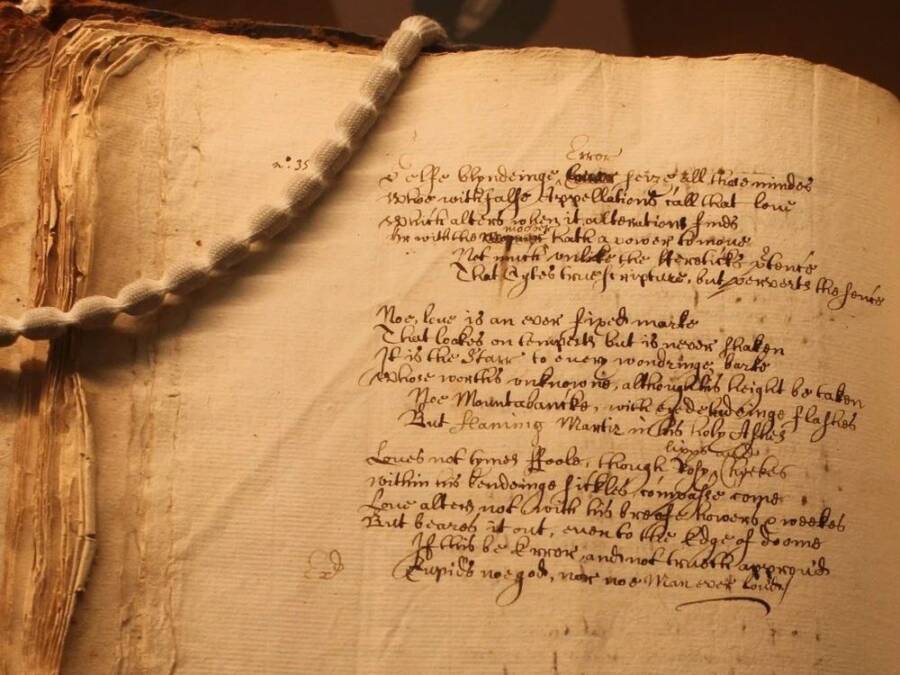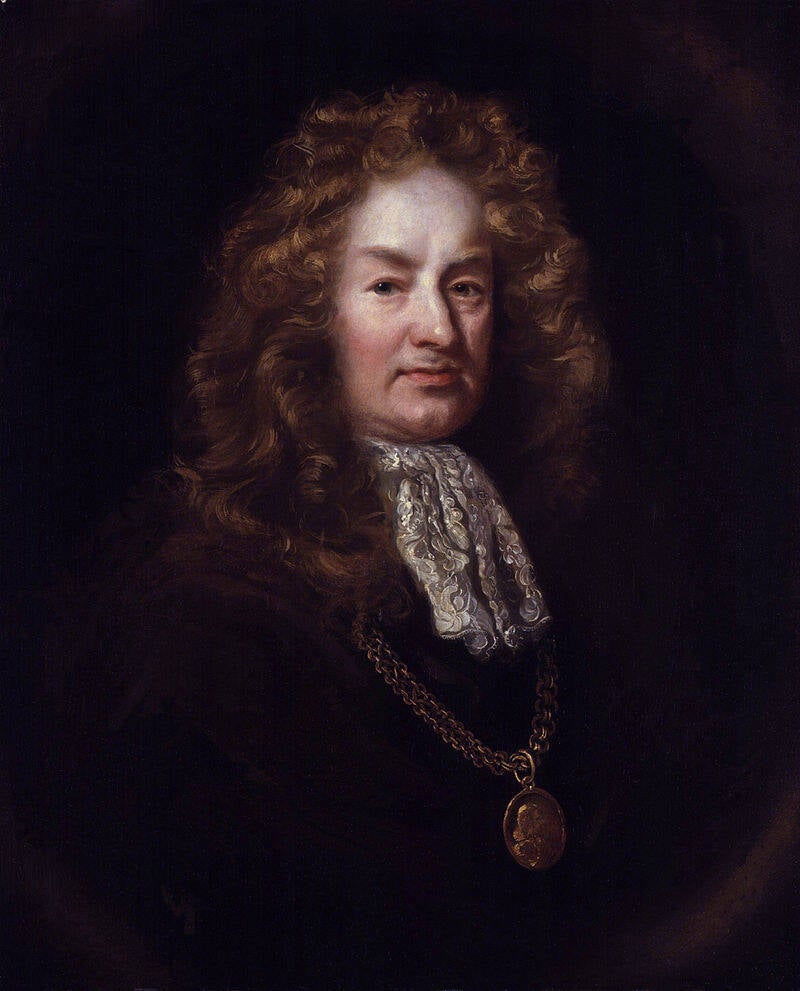This version of Shakespeare's famous sonnet was seemingly altered to invoke loyalty to the monarchy during the English Civil War.

University of OxfordThe handwritten copy of William Shakespeare’s “Sonnet 116.”
While flipping through 17th-century manuscripts at the University of Oxford’s Bodleian Libraries, researcher Leah Veronese stumbled upon a fascinating document: an altered version of William Shakespeare’s “Sonnet 116” that sheds new light on the period surrounding the English Civil War.
This revision of the iconic sonnet, which is often recited at modern weddings, was part of a poetry collection belonging to royalist politician Elias Ashmole. Instead of celebrating eternal romantic love as Shakespeare intended in the poem, this revised version seemingly promoted devotion to the English monarchy, aligning it with royalist politics during a war between King Charles I and Parliament.
The discovery has reshaped researchers’ beliefs about the popularity of Shakespeare’s sonnets and introduced a rare example of how they were repurposed to fit a political agenda.
Discovering A Strange Copy Of ‘Sonnet 116’ In A 400-Year-Old Collection

Billy Wilson/Flickr One of the Bodleian Libraries at the University of Oxford, where the handwritten copy of the sonnet was found.
Leah Veronese, a researcher at the University of Oxford, was sifting through manuscripts in the archives of the school’s Bodleian Libraries when she came across a handwritten copy of William Shakespeare’s “Sonnet 116” — but it had been greatly altered.
“As I was leafing through the manuscript, the poem struck me as an odd version of ‘Sonnet 116,'” Veronese stated in a press release from Oxford.

University of OxfordLeah Veronsese with the manuscript.
Published in 1609, Shakespeare’s “Sonnet 116” explores the constancy of love. Its first few lines read:
Let me not to the marriage of true minds
Admit impediments; love is not love
Which alters when it alteration finds…
In this recently-discovered handwritten copy, the sonnet reads:
Self blinding error seize all those minds
Who with false appellations call that love
Which alters when it alteration finds…
The new version changes Shakespeare’s opening and concluding couplet, adds seven extra lines, and sets the poem to music. While these changes may have been added to make the sonnet easier to sing, it is also likely that the advent of the English Civil War in 1642 encouraged the reworking of popular poems, songs, and other works to reflect the political beliefs of the person adapting them.
Unpacking The Political Repurposing Of The Sonnet

Public DomainA 1611 portrait of William Shakespeare.
Veronese discovered the new version of “Sonnet 116” among a 17th-century “miscellany,” a collection of texts from multiple authors. Many of the manuscript’s texts were political, with references to current events in the English Civil War and Christmas carols that had been banned due to their politically charged content.
The collection belonged to Elias Ashmole, a politician who took the side of the royalists in the English Civil War. The conflict, which was fought between 1642 and 1651, centered around the dueling powers of the English monarchy and Parliament. The country was divided into two camps: royalists who supported the Crown under Charles I and parliamentarians who supported increasing the power of the legislature and dissolving the monarchy.

Public DomainElias Ashmole, a 17th-century politician and staunch royalist during the English Civil War.
In this charged atmosphere, “Shakespeare’s text is transformed from praise of romantic constancy to political constancy,” Veronese explained in a recent article published in The Review of English Studies.
The existence of this revised version of the sonnet has surprised researchers. For decades, Shakespearean scholars believed that his sonnets were not widely circulated prior to the 1700s. Upon their publishing in 1609, the poems were a commercial failure and were rarely discussed in popular culture.
However, this most recent discovery has turned this idea on its head, reflecting a widespread awareness of the sonnet even during the 17th century.
After reading about the handwritten Shakespeare sonnet found in a 17th-century collection, go inside the story of Henry V, the English monarch immortalized in a Shakespeare play. Then, read about 27 interesting Shakespeare facts you probably aren’t aware of.





